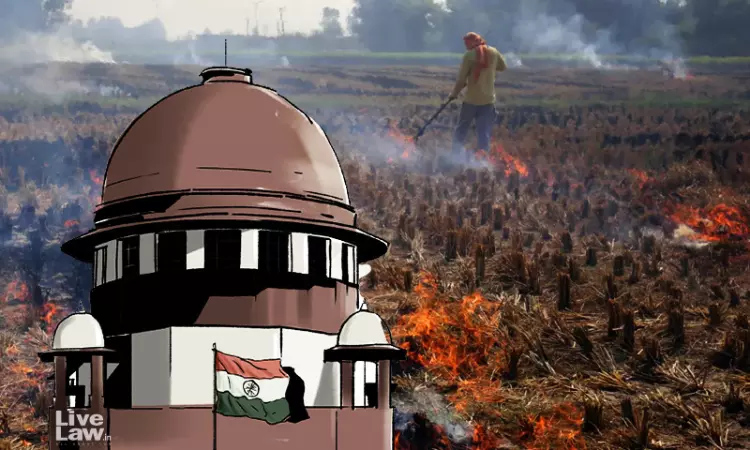Delhi Pollution : Supreme Court Suggests Excluding Farmers Burning Stubble From Minimum Support Price
Awstika Das
21 Nov 2023 4:25 PM IST

Next Story
21 Nov 2023 4:25 PM IST
The Supreme Court on Tuesday (November 21) suggested excluding farmers burning their stubble from the purview of the minimum support price (MSP) infrastructure, as a part of a carrot-and-stick policy to disincentivise stubble burning in Punjab and other states adjacent to Delhi. It also recommended completely subsidising baling machines for poor farmers and financing their operating costs...
